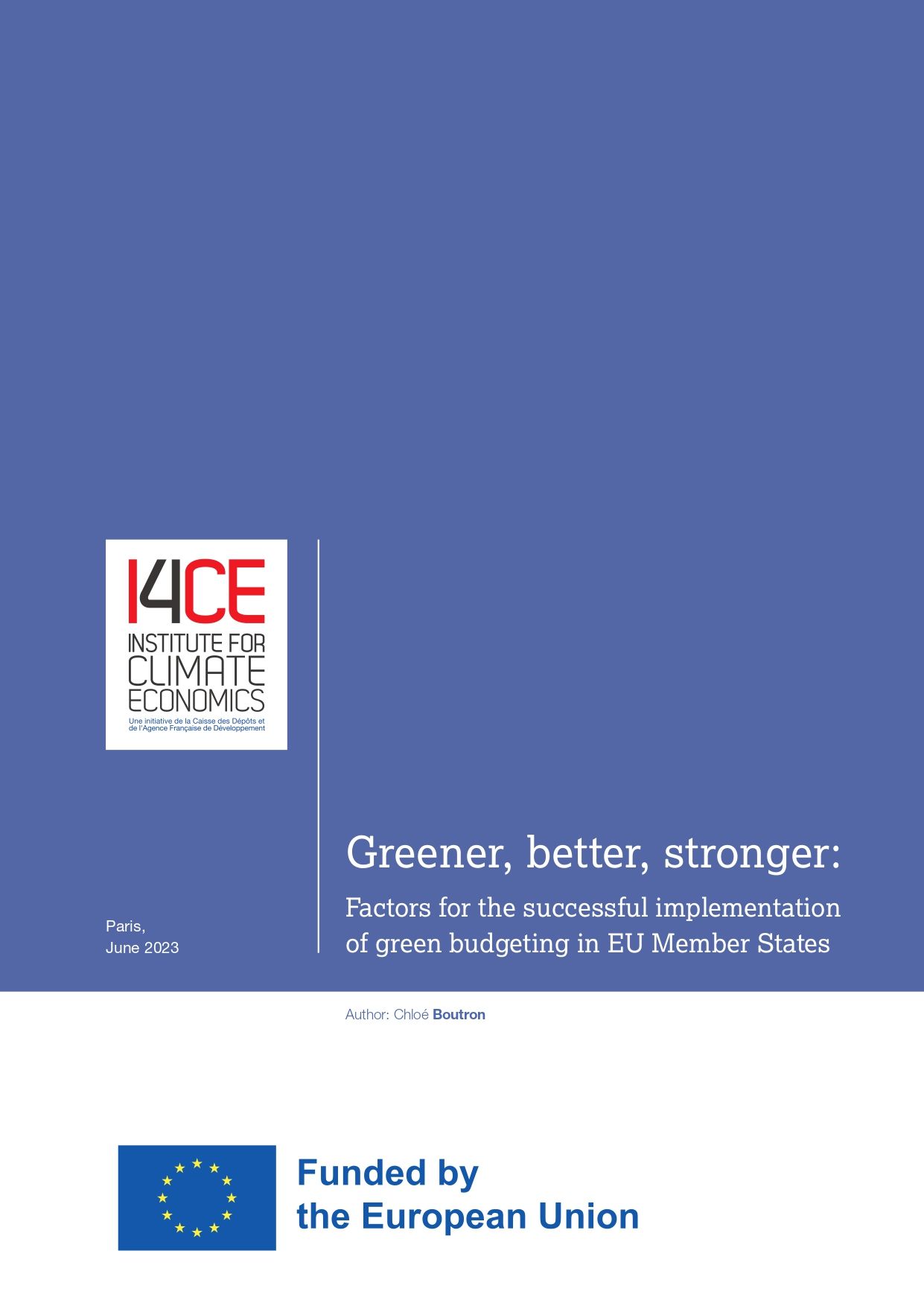Greener, better, stronger: Factors for the successful implementation of green budgeting in EU Member States
National budgets, as the main driver of public action, need to be ‘greened’ by governments to achieve the transition to low-carbon, climate-resilient, and sustainable economies. That is, budgeting processes need to ensure sufficient funds are directed towards green activities and are directed away from environmentally harmful ones.
Green budgeting consists of a set of tools to help governments align public budgets with climate and environmental objectives. Since the implementation of the first green budgeting exercise in Nepal in 2011 (1) with the support of the United Nations Development Programme (UNDP), over 60 countries, including 12 European Union (EU) Members States, have implemented the practice. Yet, only limited funds worldwide are currently allocated to climate and environmental objectives, and budgets still significantly support environmentally harmful activities (e.g., through fossil fuel subsidies) (IEA 2023).
Implementing, or improving green budgeting can help EU Member States deliver on their climate and environmental objectives. To foster the uptake of the exercise, the European Commission’s Directorate-General for Economic and Financial Affairs (DG ECFIN) published the EU Green Budgeting Reference Framework (GBRF) – a no ‘onesizefitsall’ tool – in 2020 (2). Additionally, a multicountry capacity building programme, the “EU Green Budgeting Training”, was launched in 2021 at the request of Member States. It is funded by the European Union with the Commission’s Technical Support Instrument, managed by the Directorate-General for Structural Reform Support (DG REFORM), and carried out in cooperation with the Institute for Climate Economics (I4CE) and Expertise France.
This report presents insights gathered through the delivery of the EU Green Budgeting training in 23 Member States (3). It highlights resources and opportunities that facilitate the implementation of green budgeting among Member States: the willingness to exchange on good practices with peers, EU requirements to develop climate and environmental strategies which provide context for green budgeting, and the uptake of outcome-responsive budgeting in several countries. This report also points out challenges and suggests options to circumvent them to ensure that green budgeting is implemented in a robust manner, is nationally owned, and effectively serves as a decisionmaking tool to align budgets with national climate and environmental objectives.
When properly implemented, green budget tagging – a prominent green budgeting tool – can provide a clear picture of the share of a national budget that is aligned, or runs counter, with national climate and environmental targets, and can inform reforms of budget items, notably items that support environmentally harmful activities. However, if countries want to know how much public funding is needed to achieve climate and environmental targets, then they should complement green budgeting with a financing plan for the transition to a low-carbon, resilient, and sustainable economy, featuring estimates of investment needs.

1 – https://www.npc.gov.np/images/category/climate_public_expenditure.pdf
2 – https://economy-finance.ec.europa.eu/economic-and-fiscal-governance/green-budgeting-eu_en
3 – See Table 2 in the annex for a list of participating countries.
